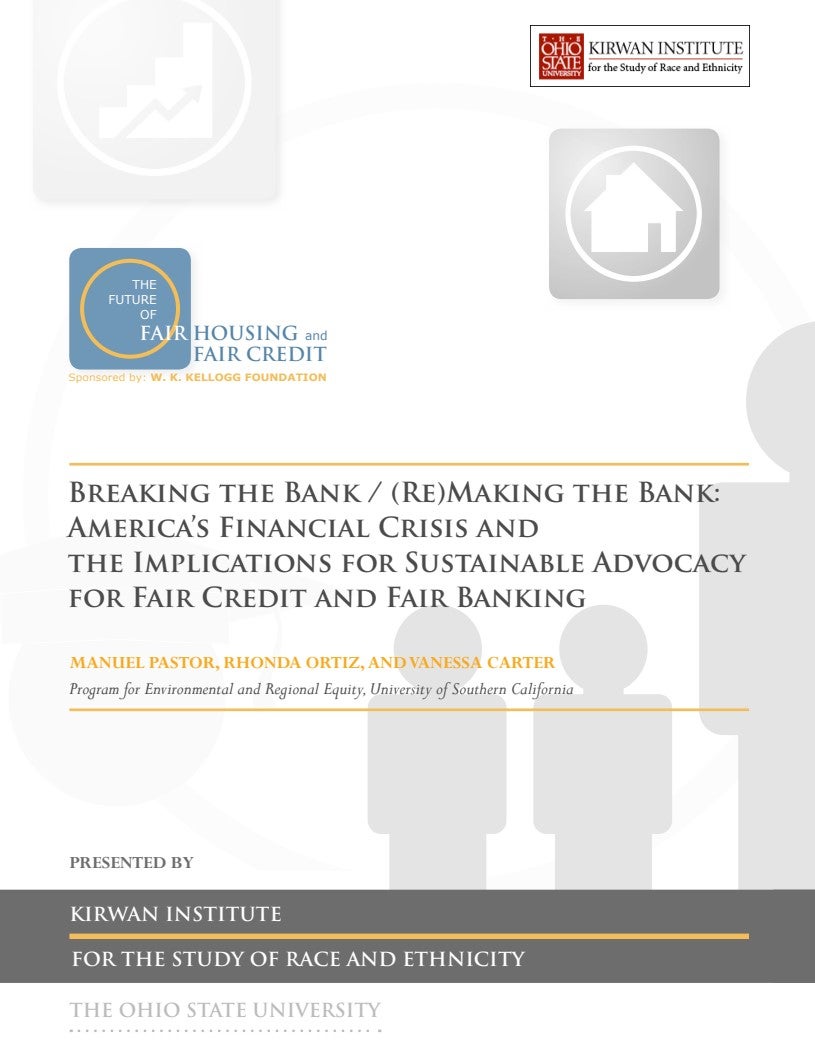
February 2010
By Manuel Pastor, Rhonda Ortiz, and Vanessa Carter
Please note: reports dated earlier than June 2020 were published under our previous names: the USC Program for Environmental and Regional Equity (PERE) or the USC Center for the Study of Immigrant Integration (CSII).
One of the biggest crises facing contemporary America is the wave of foreclosures and the broader financial meltdown. At the same time, the crisis has created the potential for change, particularly given the brewing advocacy around returning the benefits of our financial sector to consumers, not the financial elite. Advocates have argued not just for curbing the excesses of sub-prime mortgages, but also for limiting the impacts of payday loans, cash checking, and other predatory lenders, as well as revamping the Community Reinvestment Act and establishing a Consumer Financial Protection Agency.
Will this advocacy lead to sustainable change in the financial sector? Building on our earlier work on financial deserts in Los Angeles (Banking on LA) and our work on social movements (Making Change), we analyze the emerging advocacy with an eye toward the long-term potential for creating a financial justice movement. We suggest that organizers have made great progress but that it may be important to further popularize the financial equity frame, offer a viable economic model with accompanying pragmatic policies, and find intersections with the economic justice movement on a whole.
This paper was funded by the W.K. Kellogg Foundation, and organized by the Kirwan Institute for the Study of Race and Ethnicity at The Ohio State University.



